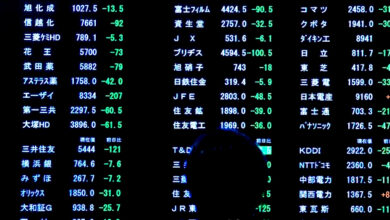FTC Appeals Judge’s Decision to Allow Microsoft’s Acquisition of Activision

WASHINGTON (Reuters) – The Federal Trade Commission (FTC) announced on Wednesday that it is appealing a federal judge’s ruling permitting Microsoft (NASDAQ:MSFT) to proceed with its $69 billion purchase of Activision Blizzard (NASDAQ:ATVI), the creator of the popular game “Call of Duty.”
Microsoft’s triumph in court on Tuesday, coupled with the British competition authority’s subsequent retreat, brings the tech giant closer to finalizing its historic deal with Activision.
However, any lingering regulatory obstacles increase the likelihood of the Microsoft-Activision agreement expiring on July 18 without completion. If no extension is negotiated, either company will be free to walk away from the deal.
The FTC’s appeal, lacking specific details, will be presented to the Ninth Circuit Court of Appeals on the West Coast.
Microsoft has expressed its intention to contest the appeal. “We’re disappointed that the FTC persists in pursuing a demonstrably weak case, and we will resist any further attempts to impede progress,” stated Microsoft President Brad Smith in an email.
The FTC declined to provide further comment on the notice of appeal.
While the companies successfully fended off an injunction in court on Tuesday, the judge maintained a stay preventing the deal’s completion until Friday, affording the FTC an opportunity to appeal.
The FTC may request a stay from the appeals court, effectively halting the deal’s closure.
In her ruling, U.S. District Judge Jacqueline Scott Corley in San Francisco dismissed the Biden administration’s argument that the deal would harm consumers by granting Microsoft, the maker of Xbox game consoles, exclusive access to popular games like “Call of Duty.”
On Wednesday, Britain’s Competition and Markets Authority (CMA), previously opposed to the transaction, suggested that a restructured agreement between Microsoft and Activision Blizzard could address its concerns, pending a new investigation.
UNCERTAINTY SURROUNDS THE FTC APPEAL
Legal experts in the United States hold differing opinions regarding the merits of the FTC’s appeal. Some argue that appeals courts typically defer to judges on matters of fact, while others believe that Judge Corley may have misjudged the standard for halting a deal.
In her 53-page order, Corley emphasized that it was insufficient for the FTC to assert that “a merger might lessen competition.” Instead, she insisted that the FTC must demonstrate that the merger will “probably substantially lessen competition.”
Legal scholars have questioned this standard, asserting that U.S. antitrust law requires the FTC to prove that the proposed deal “may” harm competition rather than showing that it “will.”
To address the FTC’s concerns, Microsoft has agreed to license “Call of Duty” to competitors, including a ten-year contract with Japan’s Nintendo Co (OTC:NTDOY), contingent upon the successful completion of the merger.
In cases where U.S. antitrust agencies lose court challenges against mergers, appeals are infrequent. Nevertheless, the FTC previously appealed a ruling over a decade ago when it failed to block Whole Foods’ acquisition of Wild Oats. The agency eventually settled with the companies before the appeals court rendered a decision.





